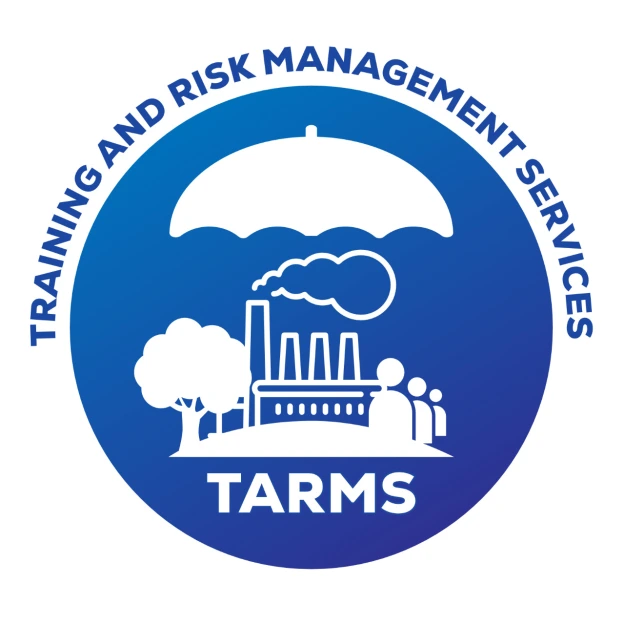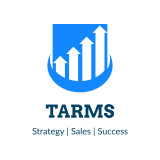As the trend towards online shopping continues to grow, businesses must adapt their marketing strategies to reach wider markets. One of the most effective ways for companies and marketers to enhance their efforts is through the use of keywords to boost their search engine campaigns.
Understanding keywords and using them effectively is crucial for increasing traffic to your company’s website, as well as driving conversions and leads for your brand. In this article, we will delve into the various types of keywords and provide insights on how to apply them effectively in your marketing strategy.
What are keywords?
Keywords are an essential component of any successful online marketing strategy. They are the words and phrases that marketers use to optimize their web content to help their websites rank high in search engine results. By strategically incorporating specific keywords throughout their content, marketers can improve their websites’ search engine ranking and increase their visibility to potential customers.
To identify the right keywords to target, marketers conduct thorough keyword research to determine the search terms and phrases that their target audience is using most frequently. This process allows them to identify high-traffic keywords that they can use to create successful content that attracts qualified leads and drives conversions for their brands.
By incorporating these targeted keywords into their website copy, blog posts, social media content, and other online marketing efforts, marketers can increase web traffic and drive potential customers to their websites. When a potential customer searches for a particular phrase or search term, the use of relevant keywords can help ensure that the company’s website appears at the top of search engine results, increasing the likelihood that the customer will click through to the site.
For example, if a marketer is developing a campaign for running shoes, they can use high-traffic keywords such as “running shoes,” “best running shoes,” or “running shoes for women” to help people locate their brand’s website in search engine results. By targeting these specific keywords, they can attract potential customers who are already searching for the products or services they offer, increasing the likelihood of converting these leads into paying customers.
19 types of keywords
- Competitor keywords
- Customer-defining keywords
- Exact match keywords
- Informational keywords
- Intent targeting keywords
- Locational keywords
- Long-tail keywords
- Long-term evergreen keyword
- LSI keywords
- Market segment keywords
- Mid-tail keywords
- Navigational keywords
- Negative keywords
- Phrase match keywords
- Product keywords
- Product-defining keywords
- Related vertical keywords
- Short-tail keywords
- Transactional keywords

1. Competitor keywords
Competitor keywords are important for businesses to consider in their keyword strategy. These keywords are the ones that competitors use to optimize their content and attract potential customers. By identifying and analyzing competitor keywords, businesses can gain insight into the strategies of their competitors and improve their keyword strategy.
To identify competitor keywords, businesses can perform keyword research and analyze the keywords used by competitors in their content and online advertising. This information can help businesses understand which keywords their competitors are targeting and how successful they are in attracting traffic to their websites.
Using competitor keywords in a business’s content strategy can help improve search engine rankings and attract potential customers who are searching for those specific terms. However, it’s important to use competitor keywords ethically and avoid directly copying their content or infringing on their trademarks.
2. Customer-defining keywords
Customer-defining keywords are a crucial type of keyword in online marketing that are intended for a specific category of customers. These keywords target a particular group of people based on various demographic factors, such as age, gender, occupation, or place of residence. By researching their target audience, marketers can create more specific and effective customer-defining keywords to improve their online marketing efforts.
For example, if a company deals with sportswear products, they might use customer-defining keywords such as “adult sports enthusiasts” to target their desired audience. By using these specific keywords, the company can reach potential customers who are more likely to be interested in their products.
To identify the most effective customer-defining keywords for their brand, marketers can research their target audience’s demographics and preferences. This research can include factors such as age, gender, location, interests, and purchasing behavior. By understanding their target audience’s characteristics and preferences, marketers can create customer-defining keywords that resonate with their target market and improve their search engine ranking.
It’s important to note that customer-defining keywords should be used in conjunction with other types of keywords, such as market segment keywords or product keywords, to create a comprehensive and effective online marketing strategy. By combining different types of keywords, marketers can create content that appeals to a wide range of potential customers while also targeting specific demographics.
3. Exact match keywords
Exact match keywords are a type of keyword match type used in search engine advertising that allows an ad to show only when someone searches for the exact keyword or phrase that has been targeted. This means that the ad will only appear if the search query matches the exact keyword that the advertiser has specified, without any additional words or variations.
For example, if an advertiser is targeting the exact match keyword “running shoes,” the ad will only show up when someone types in the exact phrase “running shoes” in the search engine. Exact match keywords are considered to be the most specific and targeted type of keyword match type, and they typically have a higher conversion rate compared to other match types.
4. Informational keywords
Informational keywords are phrases or terms that people use to find information about a specific topic. They are usually used when someone is seeking answers to a question or wants to learn more about a particular subject. These types of keywords often start with words such as “how,” “what,” “why,” “tips,” “guide,” and “best,” and can include specific phrases related to the topic.
Informational keywords are essential for content marketing because they allow businesses to create content that answers their audience’s questions and provides valuable information, positioning the business as an authority in their industry.
5. Intent targeting keywords
Intent-targeting keywords can also be used for SEO and content marketing. By identifying the intent behind the user’s search query, brands can create content that specifically addresses their needs and interests, leading to higher engagement and conversions. For example, if someone is searching for “best running shoes for flat feet,” a brand can create content that addresses this specific concern and provides solutions to the user’s problem
6. Locational keywords
Locational keywords are used to target a specific location or region in which a business operates or provides services. These keywords can be used to optimize a website or digital marketing campaign to appear in search results for users in a particular area.
For example, a restaurant in New York City may use locational keywords such as “best restaurants in NYC” or “NYC dining” to attract customers searching for dining options in the area. Locational keywords are important for businesses that rely on local customers or provide services in a specific geographic region.
7. Long-tail keywords
Long-tail keywords are longer phrases that are more specific to a particular topic or niche. They are typically made up of three or more words and have lower search volume than broader, more generic keywords. Long-tail keywords are usually easier to rank for because they have less competition and are more targeted to a specific audience. They are also known to have higher conversion rates since they attract more qualified leads.
For example, “best running shoes for injured knees,” is a perfect illustration of a long-tail keyword.
8. Long-term evergreen keyword
A long-term evergreen keyword is a keyword that remains relevant and valuable to a website’s content over an extended period, typically years. These keywords are usually not time-bound and are not specific to any current events or trends. They have enduring relevance to the website’s niche and can help drive consistent organic traffic to the website over time.
Examples of long-term evergreen keywords might include “how to lose weight” or “best time management tips.”
9. LSI keywords
Latent Semantic Indexing (LSI) keywords are conceptually related phrases or words that search engines use to understand the content of a website or web page. LSI keywords help search engines identify the context of a web page’s content and to determine its relevance to specific search queries. LSI keywords are derived from the relationships between words and concepts within a document or a corpus of documents. They are not necessarily synonyms of the main keywords used on a web page but rather related terms that help to establish the meaning and context of the content. LSI keywords are important for SEO as they can help to improve a web page’s relevance and ranking in search results.
10. Market segment keywords
Market segment keywords are an important type of keyword used in online marketing. They are generic words that are associated with a specific brand or industry and are designed to target audiences searching for general information related to that industry or brand. These keywords can also be more specific for niche marketing needs.
For example, someone who is looking to buy shoes for running might search for the general phrase “running shoes” rather than a more specific brand. By using market segment keywords such as “running shoes” in their online marketing efforts, companies can attract potential customers who are searching for products or services related to their industry or brand.
Market segment keywords can be particularly effective for companies that operate in a niche market. By using specific keywords that target a particular niche audience, companies can reach potential customers who are more likely to be interested in their products or services.
To identify the most effective market segment keywords for their brand or industry, marketers can conduct keyword research to determine the most commonly used search terms and phrases related to their business. They can then incorporate these keywords into their website copy, blog posts, social media content, and other online marketing efforts to improve their search engine ranking and attract potential customers.
11. Mid-tail keywords
Mid-tail keywords are more specific than short-tail keywords, but less specific than long-tail keywords. They typically consist of two to three words and have moderate search volume and competition.
Examples of mid-tail keywords include “affordable running shoes” or “best running shoes for beginners.”
12. Navigational keywords
Navigational keywords are used when a user is searching for a specific website or web page. These keywords are typically the name of a brand or website that the user is already familiar with and wants to visit directly. For example, a user might type in “Facebook login” or “Amazon Prime” as navigational keywords to find the login page for Facebook or to access Amazon’s Prime service. Navigational keywords are important for a brand’s online presence and SEO strategy because they help users find the exact web pages they are looking for and drive direct traffic to a specific site or page.
13. Negative keywords
Negative keywords are the type of keywords that you add to your search campaigns to exclude irrelevant search queries from triggering your ads.
For example, if you are selling luxury watches, you might want to add negative keywords like “cheap,” “affordable,” or “second-hand” to avoid displaying your ads to people who are looking for cheaper or used watches. By using negative keywords, you can improve your ad targeting and ensure that your ads are only displayed to the most relevant audience, thereby increasing your ad’s relevance and click-through rate.
14. Phrase match keywords
Phrase match keywords are a type of keyword match type used in online advertising and search engine optimization (SEO). When using phrase match, an advertiser or marketer specifies a keyword or phrase that they want their ad or content to show up for, but with additional words before or after the phrase.
For example, if an advertiser has a phrase match keyword of “blue running shoes”, their ad or content could show up for searches like “buy blue running shoes” or “best blue running shoes for men”. The words before or after the phrase must remain in the same order, but there may be additional words in between or after the phrase.
15. Product keywords
Product keywords are crucial for brands to optimize their content and attract potential customers. These keywords are specific to a company’s offerings and can directly refer to their products or services. By identifying and incorporating relevant product keywords, businesses can improve their search engine ranking and attract more customers.
For instance, if a brand offers copiers, they can use product keywords like “laser copier,” “color copier,” or “digital copier” to optimize their content and make it easier for potential customers to find their products. Similarly, in the sports industry, companies can leverage product keywords related to important sporting events or personalities to attract customers searching for products associated with them.
16. Product-defining keywords
Product-defining keywords are an essential type of keyword used in online marketing that describes and explains a product or service. These keywords are used by customers to search for specific items or products they want to purchase. As a result, brands must use product-defining keywords to outline their exact products or services.
Customers typically use product-defining keywords when they are at the initial stage of making a purchase. By including relevant and specific product-defining keywords in their online marketing efforts, brands can attract potential customers who are actively searching for the products they offer.
To effectively use product-defining keywords, brands need to analyze their product list and come up with a thorough explanation of every product. Brands should then check the descriptions of their products and select at least two relevant keywords that accurately describe the product’s features, benefits, or attributes. These selected keywords should be incorporated into the product’s online description, title, and other relevant sections of the website.
For example, a company that sells athletic shoes could use product-defining keywords such as “running shoes for men” or “trail running shoes for women” to accurately describe their products and attract potential customers searching for these specific products.
17. Related vertical keywords
Related vertical keywords refer to keywords that are related to the main keyword but are from a different vertical or industry.
For example, if you are selling camping gear, your main keyword may be “camping equipment,” but related vertical keywords could include “hiking boots,” “outdoor apparel,” and “backpacking tents.” These related keywords help expand the reach of your search campaigns and target a wider audience who may be interested in related products or services.
18. Short-tail keywords
Short-tail keywords are often more general and have a higher search volume, which can make them more competitive to rank for. They are usually one to two words in length and are often used by searchers who are at the beginning of their search process and looking for general information.
For example, someone who types “running shoes” into a search engine may be looking for a variety of options and brands to consider.
19. Transactional keywords
Transactional keywords are search terms used by potential customers to find specific products or services that they intend to purchase. These keywords usually indicate a high level of commercial intent, as the searcher is looking to make a transaction.
Examples of transactional keywords include “buy shoes online,” “book a hotel room,” or “order flowers for delivery.”
Businesses can use transactional keywords in their search engine optimization (SEO) and pay-per-click (PPC) advertising campaigns to attract customers who are ready to make a purchase
Nutshell
In summary, market segment keywords are an important tool for online marketers looking to attract potential customers and improve their search engine ranking. By targeting specific keywords that are associated with their brand or industry, companies can reach niche audiences and drive traffic to their website, ultimately leading to increased conversions and revenue.


